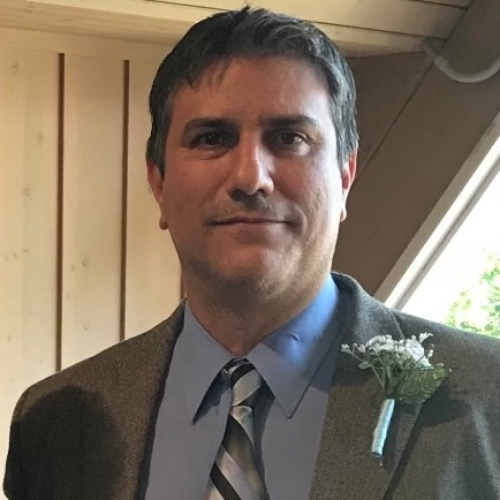-
Three Lessons On Prayer
Contributed by Shawn Miller on Nov 28, 2017 (message contributor)
Summary: A description on three different people in Luke and Mark that show us three essentials in prayer. The Tax Collector teaches us to pray with simplicity (humility), the blind man teach us to pray specifically, and the widow teaches us to pray persistently
Three Lessons on Prayer
Introduction: A little boy told the minister that his mother prays for him every night. The minister seeming impressed said “So your mother says your prayers for you each night. What does she say?” The youngster replied, “Thank God he's in bed.”
Last weekend the movie 'War Room' brought in 13.4 million dollars over the Labor day weekend and was number 1 at the box office. The makers of the movie admit that the success of the movie was due to the power of prayer. During an interview with the filmmakers Alex and Stephen Kendrick, KBAK anchor Aaron Perlman who usually does the weather for the news station, got emotional saying that the movie changed his life. Perlman, leads worship at his church, had been secretly praying to interview the brothers after seeing the movie. He said he had just been asked to fill in for the news anchorman who was out for the week when the brothers came in for the interview, and took advantage of the answered prayer, by sharing with them that some had to be escorted out of the theater because many were lingering around after the movie stuck in prayer.
My hope is that Hollywood would get the message that they don't have to have sex, violence, drugs, and bad language to have successful movies. But as the prophet Jeremiah said “Can an Ethiopian change his skin or a leopard its spots? Neither can you do good who are accustomed to doing evil.” (Jer. 13:23) Without being born again no one will see the kingdom of God, and neither will they be interested in increasing it on earth.
We turn on the television and we see our Christian principles contradicted, if not openly mocked. There have been nearly 53 million abortions from 1973 to 2011. Calling evil good and good evil seems to be fashionable today. Normal is portrayed as abnormal and abnormal is portrayed as normal. Homosexuality is natural and Heterosexuality is unnatural. Men dress like women and tell you to call them by their female name or you are being disrespectful. We see an effort in Oregon to make tobacco illegal, while there is an ongoing effort to make marijuana legal everywhere else. If there ever was a need for prayer, wouldn't you agree that time is now?
We all have heard someone who referred to prayer as 'the least we can do'. As if all other reliable solutions have been exhausted and we are only left to condescend to pray as my last resort and my final hope. Church, this should not be the case at all! Prayer is the best we can do. Prayer is the most we can do, not the least we can do.
Transition: I would like to share with you three powerful prayers that we can learn something from.
From the Tax Collector we can learn to pray simply
In Luke 18 we see a parable of the Pharisee and the tax collector, both men are going to the temple to pray. The Pharisee who was respected by everyone for his righteousness brags about himself. While the Tax Collector who everyone despised asks God for forgiveness. He doesn't stand in the synagogue like the Pharisee bragging to God about how he tithes, and how he fasts, and how he isn't like the disgusting sinners of the world and how he doesn't sin such sinful sins as those sinners. The self-righteous man feels compelled to remind God of all the good he has done and all the bad he hasn't done in comparison to others. Unlike the Pharisee, he doesn't pray continuously trying to impress God with his long prayers. We have a tendency to ramble on in our prayers, and if it is a long rambling we feel that a lot was accomplished when we are done, even though it wasn't. The Tax Collector's prayer in Luke 18:13 is simple and direct: in seven beautiful words he prays: 'God be merciful to me, a sinner'.
I don't care how long you have been a Christian, that prayer never goes out of style! There is no eloquence. There is no sophistication. There is no Bible quotes to support his requests. No reminders that God promised to respond. No complex formulas. No “If it be your will” or “in your perfect time”. He doesn't use King James English to make his point. No, it is a simple prayer from a humble heart. “God be merciful to me a sinner” Those seven words say so much. He owns the fact that he is a sinner, He doesn't even try to deny it, He knows it and he knows that the Lord knows it. It seems that in his spirit he knows that the wages of sin is death and He asks not to get the punishment that he knows he justly deserves. I wonder how often men come to God owning their sins and admitting their wrongs?

 Sermon Central
Sermon Central



